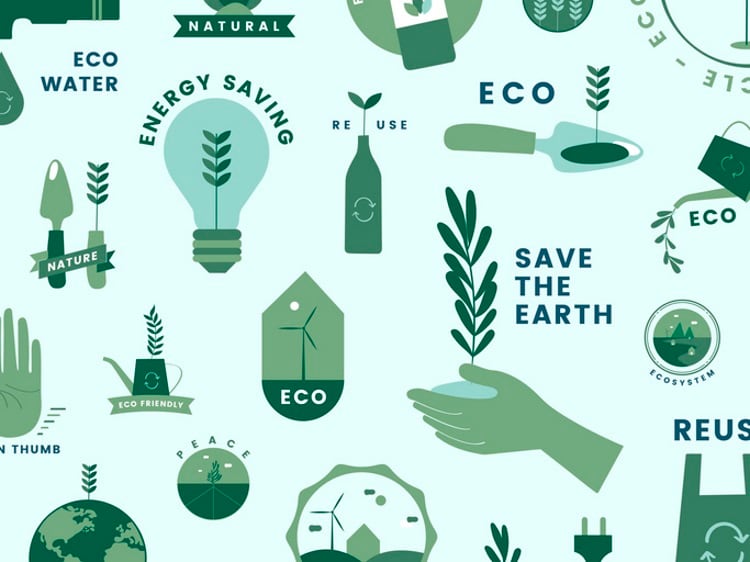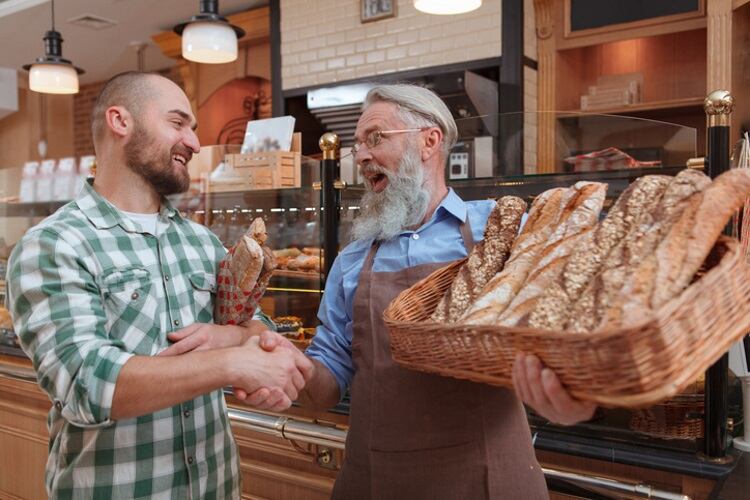UK-based Proof Social Bakehouse is an artisan wholesale bakery and café that creates a range of sourdough breads and pastries, such as sourdough donuts with unusual fillings like lemon meringue and rhubarb & custard. The staff are charismatic and engaging, and all currently serving time or recently released from prison.
The Oxford-based bakery is part of the Tap Social Movement – cofounded by husband-and-wife team Amy Taylor and Paul Humpherson (both former British Ministry of Justice advisers) – a social enterprise, craft brewery, bakery and hospitality organization that trains and creates employment for people in prison and prison leavers.
“Our mission is reducing crime and reoffending, as well as raising awareness of the power of second-chance employment and the need to support ex-offenders, as well as punish them, if we as a society want to reduce crime,” Humpherson told Bakery&Snacks.
Tap Social has created over 85,000 hours of paid employment for prison leavers and claims to have slashed the reoffending rate for its service-users from the national average of over 50% to less than 6% among its team. This tallies with research carried out by the UK’s Ministry of Justice, which found that ex-prisoners who are employed on their release are significantly less likely to reoffend.
While making great products came second to their mission, Humpherson and Taylor were convinced the food sector provided the right combination of work opportunities, career progression and social and interactive roles to build confidence and self-esteem, while combatting the challenges of stigma. Due to their very nature, cafes and bakeries are often leading forces in terms of prioritizing values and community, otherwise known as corporate social responsibility (CSR). Now a fundamental part of business strategy, CSR reflects a company's commitment to ethical practices, environmental stewardship and social welfare.
As C.D. Glin, president of PepsiCo Foundation and global head of Social Impact for PepsiCo told Bakery&Snacks, “Delivering impact and serving the communities in which you operate is good business practice and something that will continue to become the lasting norm. It’s now beyond just about doing no harm – it’s about doing the most amount of good for the most amount of people.”
Environmental impact

Baker & Baker is emblematic of a larger organization that is doing what it can to lower its environmental impact. In fact, according to director of Sustainability Nicholas Bevan, climate change mitigation is a key pillar of Baker & Baker’s 10-year ESG strategy.
Under this pillar, the company is transitioning to more sustainable ingredients – particularly oils and cocoa, as they comprise a considerable proportion of the company’s Scope 3 emissions. It’s also focusing more on issues like deforestation and worker considerations, with community initiatives geographically linked to where the company’s network of European factories and offices are based.
“We try to focus on initiatives that have genuine local relevance and impact, such as community events and local schools (via both financial and product donations), such as working with the Bradford Teaching Hospital NHS Trust in the UK and the Ruben Rose organisation in France,” said Bevan.
Like many good corporate citizens in the bakery and snacks sectors, Baker & Baker needs to conduct due diligence across its entire supply chain.
“Ensuring safe working conditions throughout our global supply chain has always been a priority for Baker & Baker,” added Bevan.
“We have a stringent code of conduct that we require all our suppliers to adhere to, which comprises a broad range of human rights safeguards.”
PepsiCo has also developed a groundbreaking tech for condensing and treating the steam evaporated from its fryers to recover more than 50% of the water used in potato chip manufacturing lines, an approach that could save 60 million liters of water a year. Listen to the full conversation Bakery&Snacks had with Denise Lefebvre, senior VP of PepsiCo's Global Foods Research and Development.
PepsiCo’s agricultural value chain, meanwhile, sees its products go through many steps to allow it to attain a positive status.
“For instance, from how a potato seed is planted and harvested to potato chips being made and transported in an energy efficient manner to your kitchen counter, to the smiles they bring with every bite,” said Glin.
Worker’s rights

Increasing pressure have also forced many bakery manufacturers – especially the smaller independents – to reduce reliance on imports and to look instead to local suppliers. Tap Social’s Humpherson calls this “good for ingredient quality, the planet and workers’ rights and conditions.”
CSR initiatives aimed at promoting economic development in underserved areas are also becoming increasingly vital. These efforts to help a community to thrive by increasing equitable access to nutritious food, safe water and economic opportunity are, in the words of Glin, “a pressure and a privilege.”
An example is the PepsiCo Foundation’s partnership with CARE for the She Feeds the World program. The multi-year partnership provides resources and training to women farmers and members of their communities, all to drive progress against PepsiCo’s goal to improve the livelihoods of 250,000 people by 2030.
As a result of the program, women leaders have been elected to public office, created supply chains within their communities and negotiated with key stakeholders for better trade agreements.
A win:win for both companies and consumers

Done right, CSR is a win-win for businesses, which, while fulfilling their responsibilities towards a better world, can also promote their practices to build trust and brand reputation. This will attract and retain customers and foster a loyal workforce.
“Consumers increasingly care about what we produce, how we produce and what companies value, what they stand for, beyond their products,” said Glin.
“They purchase and want to buy products that come from businesses that prioritize people and the planet in addition to their products and business outcomes.”
Not every business can be, or wants to be, a social enterprise. But, as Humpherson said, “I think it’s fair to say that business owners around the world have become increasingly conscious of their responsibility to give back in some meaningful way.
“Some of that is likely driven by evolving customer expectations, but I’d also like to think that a lot of it simply comes from owners themselves, better understanding and appreciating the important roles they play in their communities and the positive impacts they can and should make.”

